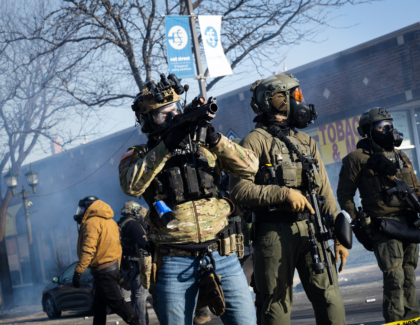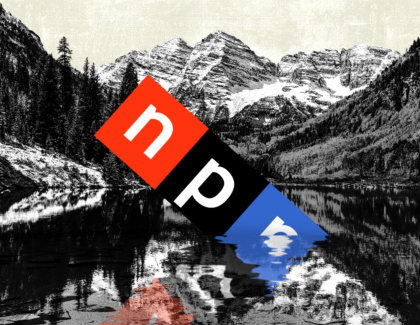Sign up for the daily CJR newsletter.
Facing criticism for a lackluster reaction to the crisis in Puerto Rico, President Trump on Thursday temporarily lifted shipping restrictions to the island and dispatched a three-star general to oversee the response. But the lack of attention to Puerto Rico isn’t limited to the administration. Media outlets have also given the crisis less coverage than it deserves.
Both general critiques and individual complaints about coverage of the US territory’s devastation were bolstered yesterday by a troubling piece of data journalism. FiveThirtyEight’s Dhrumil Mehta found that “compared to the other natural disasters of the past few weeks, Hurricane Maria has been relatively ignored.”
Criticism of media coverage comes in the face of great reporting from numerous outlets. Univision has 25 people on the ground in Puerto Rico, while Telemundo has at least 10. The Associated Press has published dozens of stories from a team that includes several staffers on the island. Reports from Puerto Rico led national news broadcasts on NBC and CBS, and appeared in the second segment on ABC’s World News Tonight. CBS’s David Begnaud, especially, deserves credit for regularly posting powerful videos to his Twitter feed.
ICYMI: Do you live in a news desert?
So why has coverage of Maria’s aftermath fallen short of the attention given to Houston and Florida last month? In part, it’s about decisions made by television networks and newspaper editors. A series of controversies (Trump vs. the NFL), scandals (private flights), and major legislative events (the collapse of the GOP health-care bill) have at different points throughout the past week been given top billing in news reports and front pages. So-called hurricane fatigue, after blanket coverage of Irma and Harvey, may be a factor. Puerto Rico’s location and underdeveloped infrastructure—as the administration has reiterated again and again—present logistical challenges, and they affect journalists as well as aid workers. Finally, the fact that nearly half of Americans don’t realize that Puerto Ricans are fellow citizens undoubtedly contributes to a lack of concentrated attention.
The crisis in Puerto Rico is far from over. With 3.5 million Americans in dire straits, decision-makers in newsrooms around the mainland need to do more to highlight the issue. Below, more on the response to Maria’s aftermath.
- Must watch: CNN’s Bill Weir reports from the island of Vieques, where the devastation is shocking. “We are a forgotten island,” one man tells Weir.
- Journalists as first responders: CJR’s Karen K. Ho covers the trend of reporters, with their satellite phones, helping Puerto Ricans connect with their families.
- Relief efforts falling short: The AP’s Danica Coto and Laurie Kellman report from San Juan on the frustration many Puerto Ricans expressed about a disorganized response from Washington.
- Years of indifference: For BuzzFeed, Michael Sean Winters writes that the destruction in Puerto Rico has “a string of injustices at its core.”
Other notable stories
- The Nation’s Julie Reynolds investigates the man behind Digital First Media, the company “destroying America’s hometown newspapers.”
- Reuters is launching an ambitious project to track the consequences of administration policies. CJR’s Jon Allsop has the details.
- The Ringer’s Alyssa Bereznak has a smart piece on Silicon Valley companies getting into the journalism business.
- Senator Mark Warner called Twitter’s response to questions about possible Russian interference in the 2016 election “inadequate on every level,” report Politico’s Ashley Gold and Nancy Scola.
- CNN’s Hadas Gold reports that the Kremlin has threatened to retaliate should US authorities take action against Russian-government funded Sputnik or RT.
Has America ever needed a media defender more than now? Help us by joining CJR today.







